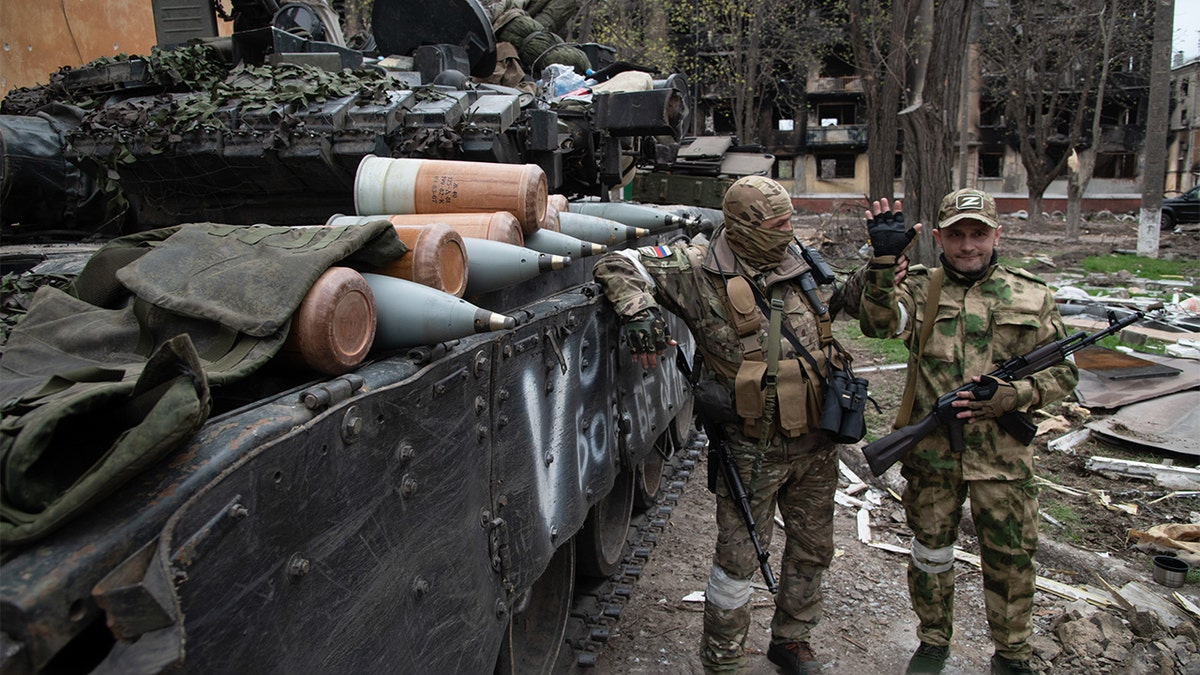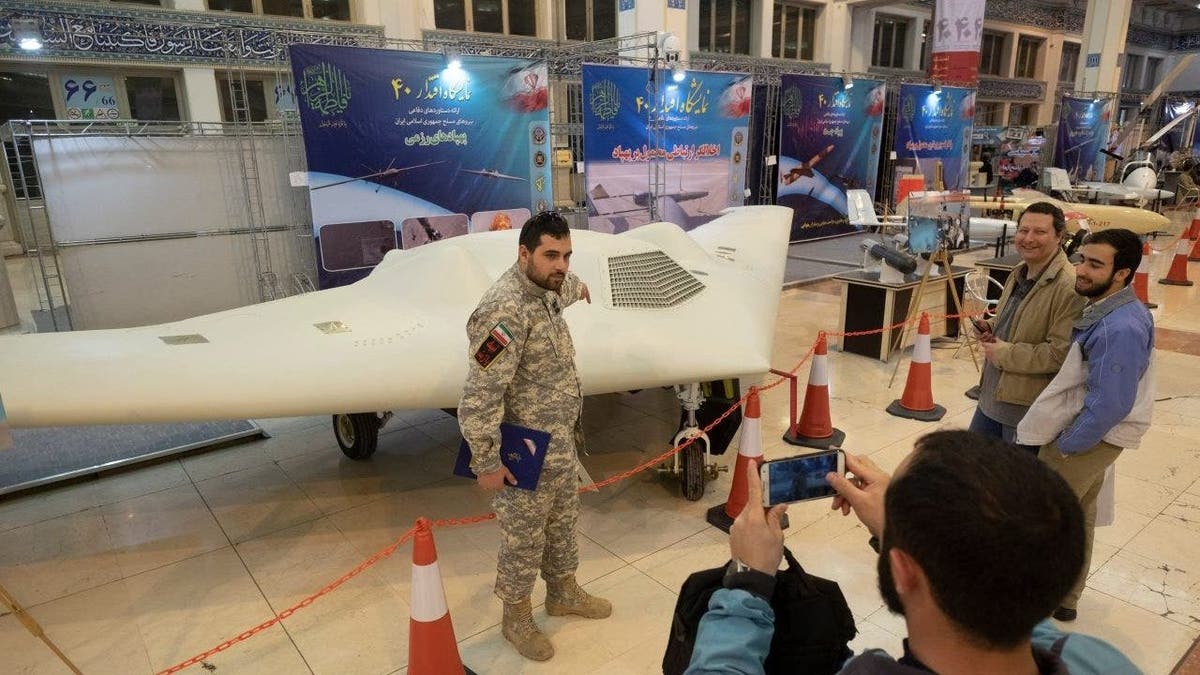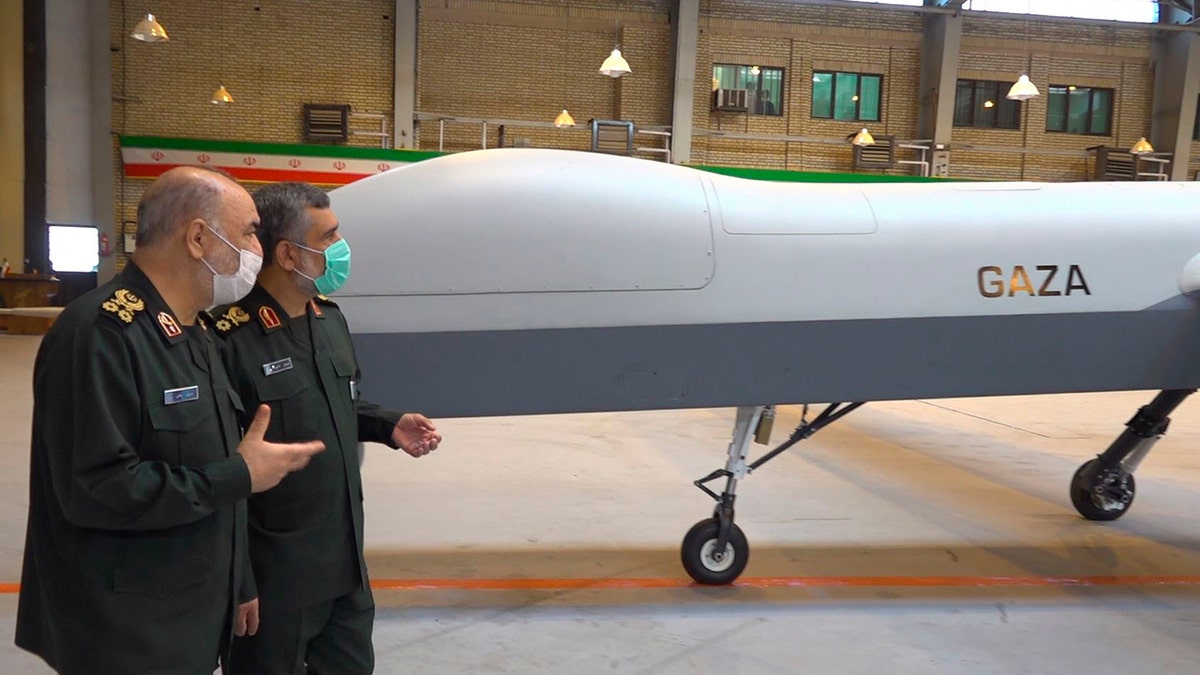World leaders react to possible Iran nuclear deal revival
Fox News national security correspondent Jennifer Griffin has the latest on Iran nuclear negotiations after a top diplomat says 'less confident' about finishing deal on 'Special Report.'
The U.S. Treasury Department has sanctioned Iranian "persons" involved with supplying Russia Unmanned Aerial Vehicles (UAVs) amid its deadly war in Ukraine.
The Department said Thursday that an air transportation service provider, three companies and one individual involved in "research, development, production, and procurement of Iranian UAVs and UAV components" were designated by the U.S. for aiding Moscow as it scrambles to resupply its war effort.
"Russia is making increasingly desperate choices to continue its unprovoked war against Ukraine, particularly in the face of our unprecedented sanctions and export controls," Under Secretary of the Treasury for Terrorism and Financial Intelligence, Brian Nelson said.

Russian soldiers pose by a T-80 tank in a position close to the Azovstal frontline in the besieged port city of Mariupol. (Maximilian Clarke/SOPA Images/LightRocket via Getty Images)
Nelson said the U.S. would "not hesitate" to slap sanctions on any entity or individual found to be aiding Russia in continuing its war effort.
The U.S. and its international allies warned at the onslaught of the war that not only would Russia become the target of severe international sanctions, but any nation or entity found to be assisting Moscow during its war in Ukraine.
Safiran Airport Services have been accused of coordinating with Russia’s military and shipping personnel, UAVs and related equipment from Iran to Russia.
Paravar Pars Company, Design and Manufacturing of Aircraft Engines, the Baharestan Kish Company and its managing director Rehmatollah Heidari have been designated by the U.S. for the production of Shahed-series UAVs along with related components for Iran’s Islamic Revolutionary Guard Corps, which is deemed a terrorist organization by the U.S.

A member of the Iran's Revolutionary Guard Corps, poses for a photograph with Shahed-171 (Simorgh) Drone during the Defensive Achievements Exhibition of the 40th anniversary of the Islamic Revolution in Imam Khomeini Grand Mosque in central Tehran on the second day of ten-day celebration of Islamic Revolution anniversary, February 2, 2019. (Photo by Morteza Nikoubazl/NurPhoto via Getty Images)
RUSSIA IS ALREADY EXPERIENCING TECHNICAL FAILURES WITH IRANIAN DRONES
The Thursday sanctions mean the companies or people affiliated with them are no longer allowed to enter the U.S. or transact with anyone in the U.S.
The designation comes roughly two months after the U.S. first accused Iran of "gifting" hundreds of drones to Russia to aid its flagging supplies in Ukraine.
The Biden administration announced earlier this week that Russia is also looking to North Korea to purchase rockets and artillery shells for its war effort.

In this photo released on Saturday, May 22, 2021, by Sepahnews of the Iranian Revolutionary Guard, the Guard's Commander Gen. Hossein Salami, left, and the Guard's aerospace division commander Gen. Amir Ali Hajizadeh talk while unveiling a new drone called "Gaza" in an undisclosed location in Iran. (Sepahnews via AP)
CLICK HERE TO GET THE FOX NEWS APP
"The United States will hold those who support Russia’s unprovoked war against Ukraine to account," the State Department said late Thursday. "We will also use all available tools, including sanctions, to prevent, deter, and dismantle the procurement networks that supply UAV-related material and technology to Iran."
The U.S. Treasury noted in its announcement that sanctions are not intended to "punish" but to encourage a "positive change in behavior."




















